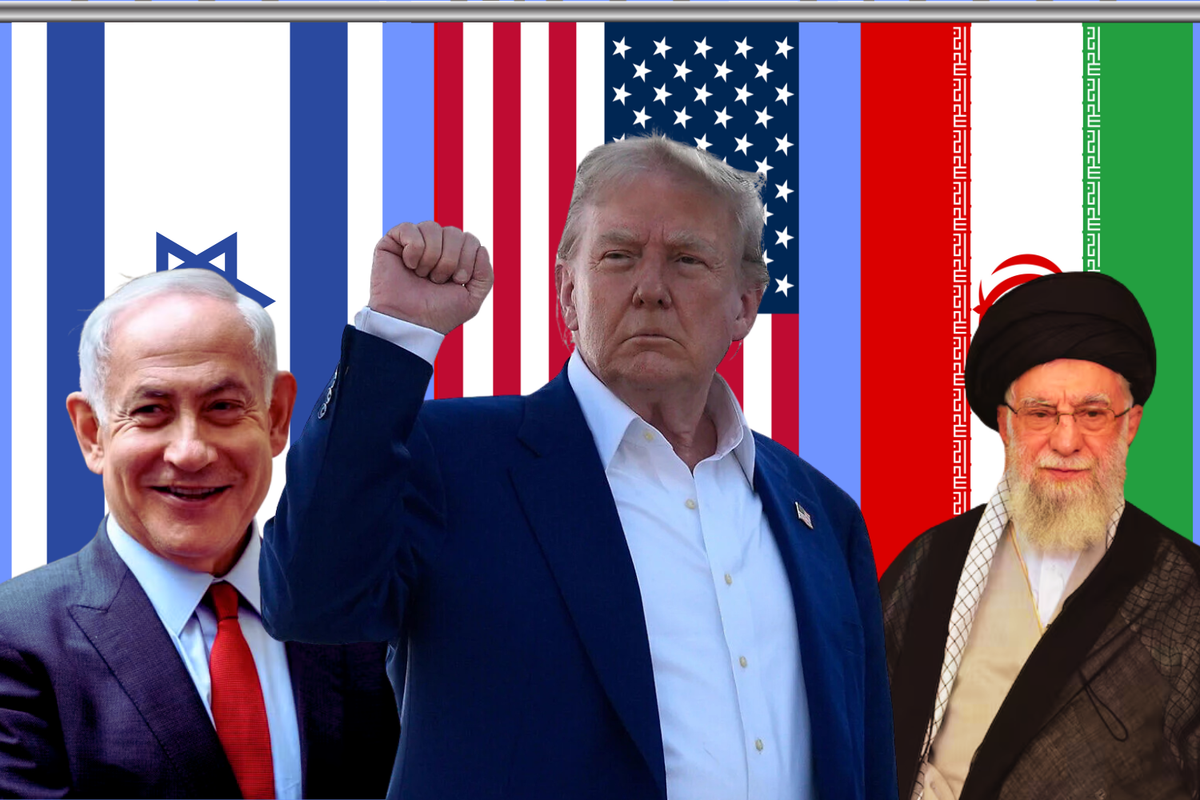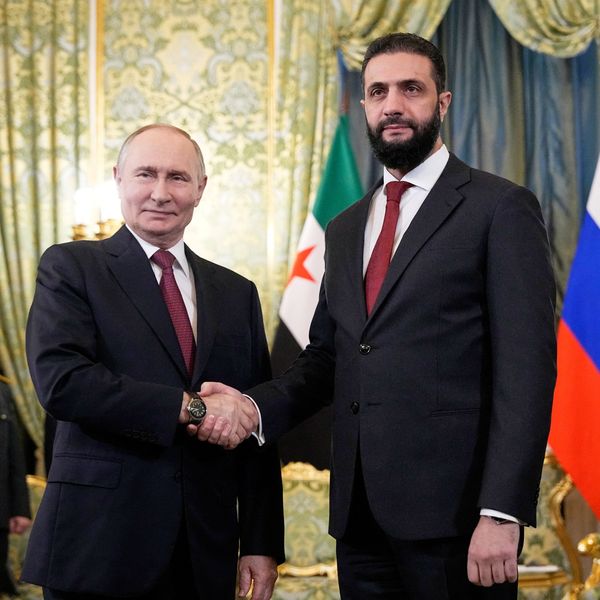What did the US, Iran and Israel gain from the June standoff?
After 12 days of war, Iran stands firm while Israel and the US appear to have fallen short of their goals of regime change and nuclear rollback

Zain Ul Abideen
Senior Producer
Zain Ul Abideen is an experienced digital journalist with over 12 years in the media industry, having held key editorial positions at top news organizations in Pakistan.

With limited resources, Iran showed it could take a hit—and strike back hard. Tehran’s message: next time, retaliation will be fiercer.
Nukta
The war between the United States, Israel, and Iran is over, for now. The ceasefire came just as the conflict teetered on the edge of a much larger and potentially catastrophic escalation for the region and beyond. But beneath this fragile calm, another kind of battle is already underway—a battle of narratives.
All three sides—Washington, Tel Aviv, and Tehran—are claiming victory. Each has carefully crafted its version of what happened and what it meant. It’s no longer just a war of bombs and rockets; it’s a war of narratives. And in this new war, perception is power.
The June standoff was short, brutal, and chaotic. It began with Israel’s surprise strikes on Iranian nuclear sites, military leaders, and scientists on June 13. Iran retaliated with missile barrages that reached deep into Israeli cities, including its capital, Tel Aviv.
The United States, initially on the sidelines, entered the conflict with the world’s most powerful bombers, striking Iranian nuclear facilities. Just days later, a ceasefire was announced, brokered by Washington and accepted by both Iran and Israel.
But the aftermath has raised more questions than it answered. What was achieved, really? What did each side gain beyond the headlines and press conferences? And why does everyone, even those who suffered the most, now claim to have won?
‘US still the strongest military power’
All three players claimed gains. But who walked away with something tangible? Javed Hafeez, a former Pakistani diplomat with deep experience in the Middle East, told Nukta that the U.S. has proven once again that it is the strongest military power in the world.
That much was clear when American B-2 stealth bombers and submarine-launched missiles rained down on Iran’s nuclear facilities. Washington’s entry into the war was not just about supporting Israel—it was about reasserting American relevance in a volatile region and reminding both allies and adversaries of its unmatched firepower.
But Washington didn’t stop at military action. Almost immediately after the strikes, U.S. officials began pushing for de-escalation. Trump’s envoy, Steve Witkoff, publicly confirmed that indirect talks with Iran were already underway and labeled them “promising.” This swift pivot from war to diplomacy wasn’t accidental; it was calculated.
According to Hafeez, the ceasefire wasn’t prearranged, but the U.S. had clearly prepared for this two-step strategy: bomb first, then negotiate.
By appearing both aggressive and restrained, Trump managed to bolster Gulf allies, contain Israeli overreach, and still leave space for a diplomatic outcome.
The only risk for Washington? That its dual role as both attacker and peace-broker could be seen as contradictory, or worse, opportunistic. But for now, the U.S. walks away having shown strength—and having left the door open for a long-term deal.
However, Trump’s recent remarks - expressing frustration with Israel over ceasefire violations, hinting at resuming nuclear talks with Iran as early as next week, and even signaling a possible easing of sanctions - suggest a White House caught off guard by the scale and intensity of Tehran’s retaliation.
Israel fails spectacularly
Israel launched the war with ambitious goals: to dismantle Iran’s nuclear program completely and destabilize its regime. It failed in both.
Prime Minister Benjamin Netanyahu declared both missions accomplished in a televised address, calling the operation a “historic victory.” But analyst and Middle East commentator Ori Goldberg told Al Jazeera that those claims don't hold up to scrutiny.
“Decapitation” of Iran’s nuclear program didn’t happen. Iran had reportedly relocated its enriched uranium stockpiles before the attacks. The most critical elements of the nuclear infrastructure—those buried deep underground—survived, according to U.S. intelligence leaks. Even Trump’s own Defense Intelligence Agency questioned the success of the strikes, suggesting Iran’s capabilities were set back by only a few months.
The second goal—regime change—also failed spectacularly. “Israel ended up achieving the opposite,” Goldberg wrote. Instead of triggering dissent, Israeli assassinations of IRGC leaders rallied even regime critics around the Iranian flag. Iranians, he noted, saw their entire country under attack, not just the regime.
Israel’s targeting of symbolic structures like Evin Prison and the IRIB broadcaster backfired, too. Intended to demonstrate solidarity with Iranian dissidents, the strikes were widely seen as tone-deaf and counterproductive. They even endangered political prisoners, some of whom were moved to unknown locations by Iranian authorities.
Operationally, Israel showed it could strike inside Iran. But Iranian missile strikes penetrated Israel’s famed Iron Dome defense system, bringing key cities to a halt. “The Israeli economy was grinding to a halt,” Goldberg observed, and interceptor supplies were running dangerously low.
For Israel, the war ended without achieving its grand strategic aims. Worse, it left the country more isolated, militarily exposed, and politically outmaneuvered. It also shattered the myth of the invincibility of Israel’s defense system. Even more striking, images of destruction and panic inside Israel echoed the very horrors it has been inflicting on Gaza, where it has been carrying out a brutal, nearly two-year-long genocide.
Iran: Damaged but emboldened
Iran lost the most in human terms. Its health ministry reported over 600 civilian deaths from Israeli strikes, with thousands more injured. Cities were bombed, military sites demolished, and power centers shaken.
Yet remarkably, Iran did not collapse. It didn’t sue for peace. It didn’t surrender its nuclear ambitions. And in key ways, it walked away stronger.
“Iran has proven that it is resilient,” Hafeez said. “It cannot be run over.” That resilience wasn’t just physical—it was psychological.
Tehran responded with missile strikes that penetrated Israeli airspace, a feat not seen before. And it retaliated against the U.S. with an almost symbolic strike on the Al Udeid airbase in Qatar—carefully coordinated to avoid casualties and preserve diplomatic ties with Doha.
Hafeez emphasized the choreography behind that move. “Iran had given sufficient notice to the U.S. and Qatar,” he said, framing it as part of a broader strategic script.
On the nuclear question, Hafeez believes Iran’s program was delayed but not destroyed. He expects Iran to continue its work covertly while remaining within the NPT framework to avoid international scrutiny. “Rather than pursuing the nuclear plan openly, Iran will do it secretly,” he said.
Iran also emerged victorious in the battle of narratives. Much of the world viewed it as the aggrieved party after an unprovoked Israeli attack. Major powers like China and Russia, along with regional players such as Pakistan and Turkey, rallied behind Tehran. Even U.S. President Donald Trump acknowledged the effectiveness of Iran’s retaliation.
Despite limited resources, Iran’s military response sent a strong message: it could not only absorb a blow but strike back with precision and force. The warning from Tehran was unmistakable—any future aggression would be met with even greater retaliation.
In the end, all three sides walked away with something to sell to their people. The United States demonstrated its military superiority while signaling a clear preference for diplomacy over escalation.
Israel, though battered, can claim it struck deep into Iranian territory and temporarily set back Tehran’s nuclear ambitions. And Iran, despite absorbing heavy blows, emerged more defiant, confident, and arguably more credible, having proven it could withstand a coordinated assault and hit back with force.
In a world where narratives often shape policy more than facts, all three sides found something to sell. But as the dust settles, the real question is not who won, but how long until it all erupts again?










Comments
See what people are discussing